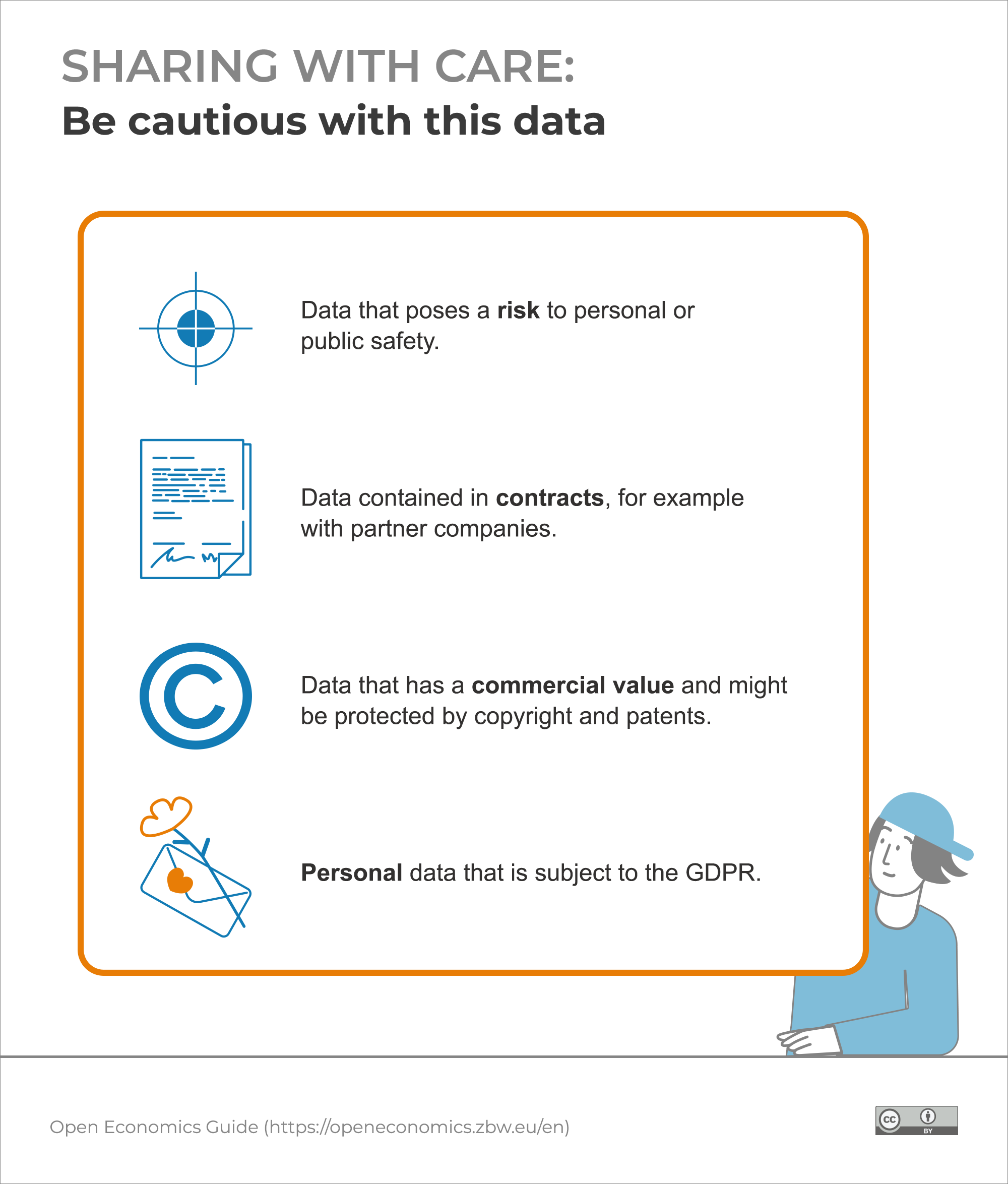Which Data May Be Published
Researchers should make their data as open as possible, unless the data are confidential, protected by laws or if their unrestricted transmission could be regarded as unethical. Your funding or research coordinator will often inform you if your planned data collection leads to data that requires additional security/protection. Data that are particularly worthy of protection include: Heath or genetic data, criminal records, survey data with identifiable test persons and pupils – or standardised test results.
Sharing the data may not be possible for the following reasons:
- Copyright and patents: Data with a commercial value cannot be published.
- Danger: The data represent a security danger and should therefore not be made publicly accessible.
- Contracts: Contracts with partner companies for example can restrict or prohibit the sharing of data.
- Data protection: Open Data is not always possible with personal data and must take place in accordance with the data protection regulations (GDPR).

An Educause article describes why data anonymization and de-identification are important as well as ongoing methodological training in this area. You can find out how to anonymise datasets in worksheet 13 "Anonymise datasets” from the worksheet series of the Open Science Magazine of the ZBW. An interactive virtual assistant was developed in the BERD@NFDI project to answer legal questions on data protection. You can find further information on the protection of personal data on the ENERI Training Materials site: Protection of research participants' rights in open science
If you are unsure about the required security standards for your data, you can contact the data protection officers, your research colleagues or Open Data and/or research data management officers.